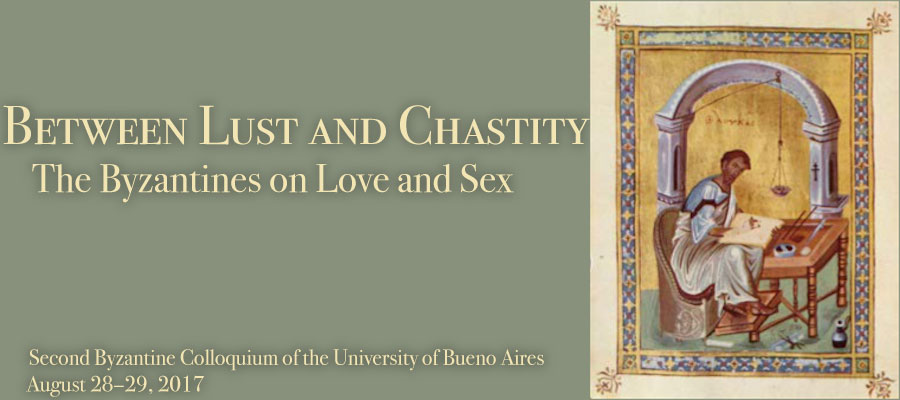Between Lust and Chastity: The Byzantines on Love and Sex, Second Byzantine Colloquium of the University of Buenos Aires, August 28–29, 2017
Rivers of ink have flown since A. Kazhdan’s seminal contribution, “Byzantine Hagiography and Sex in the Fifth to Twelfth Century” (1990), including V. Burrus’ The Sex Lives of Saints (2004). Nevertheless, no study on matters Byzantine covers in a comprehensive way divine and human love, the codification of the relation between sexes, the interaction between an avowed morality and the real practice of sexuality. This colloquium aims to put together a number of papers tackling these and similar issues in the field of Byzantine Studies.
Whereas a historical, anthropological or sociological approach of this area has much to offer, the UBA research team, with its focus on narratology, will pay special attention to love as a dynamic principle in Byzantine storytelling, either hagiographical, historical, novelistic or of any other kind. Indeed, the centrality of love, which can take on myriad forms (as a topos, as a target towards which a given plot aims, as a powerful tool towards meaningful characterization, as a horizon of social expectation etc.) can be evaluated fruitfully in the framework of the evolution of narrative forms. A dynamic analysis of erotic motifs can be as productive for diachronic narrativity as the study of spatiality, of temporality, or of narrators and narratees.
Other points of view are, of course, also possible: from the Byzantine reception of the Song of Songs to Byzantine marriage; from love poetry in the Anthology to the apparent desacralization of erotism studied by H.-G. Beck in his Byzantinisches Erotikon; from Byzantine readership of the Greek novels to the erotic connotations—or absence—of virginity and mystical experience. Presentations on more metaphorical subjects such as the love of learning are also welcome.
